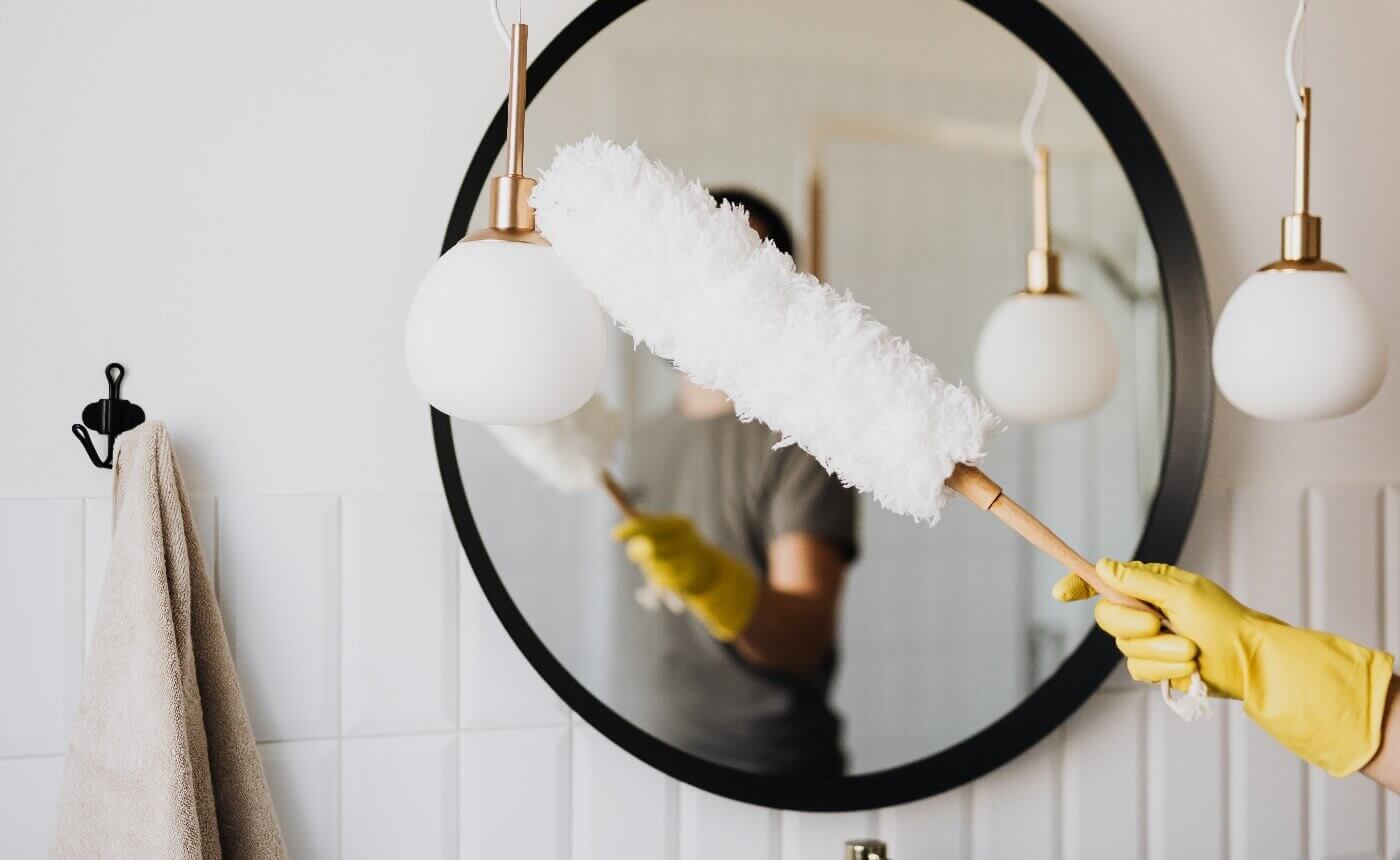In 2018 Mrs Hinch took Instagram (and the whole of the UK) by storm when she created her home account, and began sharing her favourite cleaning tips. After Mrs Hinch gushed about cleaning and endorsed one of her favourite products, Zoflora, the brand noticed a 28% increase in sales in 2018 alone. And then, in 2019, Marie Kondo’s Netflix programme ‘sparked joy’ among millions of millennials.
Thanks to Mrs Hinch and the Marie Kondo effect, cleaning has become trendy again. On Instagram the tag #cleaning has over 5.2M posts – which proves that it is most definitely a hot topic. But why are so many people getting excited over cleaning when it’s just a mundane task that everyone has to do on a daily basis?
Well, it might have something to do with the abundance of mental health benefits that it boasts.
When cleaning or tidying, you are focusing on something productive and that has a positive outcome. When your mind is on the job in hand, you’re not over-thinking or worrying – instead, your focus is on getting the job done. The same can be said for DIY, crafting or getting creative in a way that suits you! When you’re actively doing something it can really clear your mind.
Sue Rae from Wellbetter says “Decluttering and cleaning really helps clear your mind and also promote relaxation.” She also says that clutter can cause feelings of anxiety and depression.
This rings true for many people. We spoke to three young people to see how getting swept up with cleaning has aided their mental wellbeing. Robert, 22, told us how he mainly struggles with motivation and productivity, “I’ve found cleaning helps me maintain focus during the days working at home during lockdown,” he continued, “I really enjoy cleaning and I could go as far as to say I’ve made it into a positive habit. The act of tidying has a tangible effect and is a form of self care for me, as I take care of myself through taking care of my environment.
Lilith used to think that cleaning was a form of procrastination, but now it’s It‘s something she does before settling down to do any uni work, “clear the desk, make my bed, clean the bathroom. Sometimes my breaks from work are even spent deep cleaning the kitchen.” She assumed that this was just her way of holding off work for as long as possible. She made a conscious effort to stop being so meticulous with my cleaning, “but as soon as the cleaning stopped, so did my productivity.” Lilith told us how cleaning and tidying eases her anxiety and makes her feel organised and ready and willing to work. “Now I know, if I start off my day by bleaching the loo or glass cleaning the shower, I have a good day ahead! The satisfaction of cleaning my environment is like cleaning my brain of all negativity!”
Mrs Hinch has even spoken openly about how cleaning helps her mental health. She talks about this in her debut book, as well as discussing it on TV programmes like This Morning. Within her book, Hinch Yourself Happy, she talks about the sense of accomplishment that cleaning and tidying can give you, which in turn aids better mental health, “I just found that by cleaning I could calm myself down if I felt a panic attack coming on.” she says in her book.
It is actually proven to! A psychology professor from the University of Southern California published a study that explored the correlation between having a clean house and improved mental health. In 2010 the academic journal No place like home: home tours correlate with daily patterns of mood and cortisol, was published. Within the study, the author
Darby Saxbe, reported that cleaning gives people a sense of “mastery and control over their environment.” The author continued, “Life is full of uncertainty and many situations are out of our hands, but at least we can assert our will on our living space.”
If you’re ever feeling fuzzy-headed and in need of a quick boost, turn on the hoover or pick up the duster and we can guarantee you’ll feel brighter!

